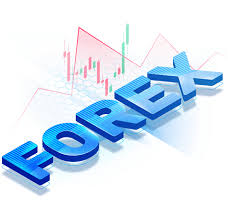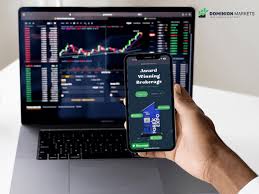
In the world of finance, forex trading stands out as one of the most accessible and dynamic investment opportunities. As the currency market operates 24 hours a day, five days a week, traders can engage in trading activities from anywhere in the world. However, to succeed in forex trading, it is essential to have a reliable forex currency trading broker by your side. A crucial aspect to consider in this regard is the selection of a broker that not only facilitates trading but also provides a safe and intuitive trading environment. One such platform you could explore is forex currency trading broker protradinguae.com, which vows to deliver excellence in trading services.
Understanding Forex Trading
Forex, or foreign exchange, is the market where currencies are bought and sold. The forex market is the largest financial market globally, with trillions of dollars being traded daily. Forex trading involves speculating on the future strength or weakness of one currency compared to another. Currency pairs, such as EUR/USD or GBP/JPY, denote this relationship. Traders buy a currency pair when they believe the first currency will strengthen against the second, and sell it when they believe the opposite will happen.
What is a Forex Currency Trading Broker?
A forex broker acts as an intermediary between individual traders and the forex market. These brokers provide a platform for traders to execute their trades, access valuable market information, and utilize various trading tools. Choosing the right forex broker is critical, as it can significantly influence your trading experience and potential profitability.
Types of Forex Brokers
There are three primary types of forex brokers: Dealing Desks (DD), No Dealing Desk (NDD), and Electronic Communication Network (ECN). Each has its advantages and disadvantages.
1. Dealing Desk (DD) Brokers
Also known as market makers, DD brokers set their prices and take the opposing side of your trades. They profit from the spreads and may sometimes create a conflict of interest due to their involvement in trading. However, they often provide tighter spreads in lower volatility environments.
2. No Dealing Desk (NDD) Brokers
NDD brokers do not take the other side of your trades. Instead, they connect traders directly to liquidity providers, such as banks or other traders. NDD brokers usually offer variable spreads and can provide more transparency in pricing.
3. Electronic Communication Network (ECN) Brokers
ECN brokers usually provide direct access to the interbank market. They facilitate trading between buyers and sellers without any intervention. Traders enjoy tight spreads and market-driven prices, but they may have to pay a commission for every trade executed.
Factors to Consider When Choosing a Forex Broker
Selecting the right forex broker requires careful consideration and research. Here are some critical factors to take into account:
1. Regulation and Licensing
Always choose a broker that is regulated by a reputable authority, such as the Financial Conduct Authority (FCA) in the UK or the Commodity Futures Trading Commission (CFTC) in the US. Regulation ensures that the broker adheres to strict guidelines, fostering transparency and fairness.
2. Trading Platform

The trading platform is your gateway to the forex markets. Look for brokers that offer user-friendly, stable, and feature-rich platforms. Popular platforms include MetaTrader 4 (MT4) and MetaTrader 5 (MT5), which offer advanced charting tools, indicators, and automated trading capabilities.
3. Spreads and Commissions
Be aware of the spreads and commissions charged by your broker. Compare these costs across different brokers and ensure that they align with your trading strategy. Some brokers offer zero commission trading but may compensate through wider spreads.
4. Customer Support
Reliable customer support can make a significant difference in your trading experience. Ensure that your broker provides customer service in your preferred language and offers various methods of communication, including live chat, email, and phone support.
5. Range of Available Currency Pairs
Different brokers may offer various currency pairs for trading. If you have specific pairs in mind, check if the broker provides access to them. A broader range means more trading opportunities and better chances to diversify your portfolio.
Trading Strategies in Forex
Once you have chosen a forex broker, it’s essential to develop a trading strategy. Various trading strategies cater to different styles, risk tolerances, and goals. Here are some popular ones:
1. Scalping
Scalping involves making multiple trades over very short periods, aiming to capture small price movements. Traders often open and close positions within minutes and rely on quick decision-making and market analysis.
2. Day Trading
Day trading involves buying and selling currency pairs within the same trading day. Day traders capitalize on intra-day price fluctuations and do not hold positions overnight to avoid market risks.
3. Swing Trading
Swing traders hold positions for several days to take advantage of price swings. This strategy requires patience and a good understanding of market trends and technical analysis.
4. Position Trading
Position trading is a long-term strategy where traders hold positions for weeks, months, or even years. Position traders focus on fundamental analysis and market trends to make informed decisions.
Conclusion
Choosing the right forex currency trading broker is a fundamental step in your trading journey. It can influence your trading experience, your ability to access markets, and ultimately, your profitability. By understanding the types of brokers available, considering essential factors such as regulation, trading platforms, and customer support, and developing a solid trading strategy, you can enhance your chances of success in the dynamic world of forex trading. Always remember to continue learning and adapting to market changes to stay ahead in the game.